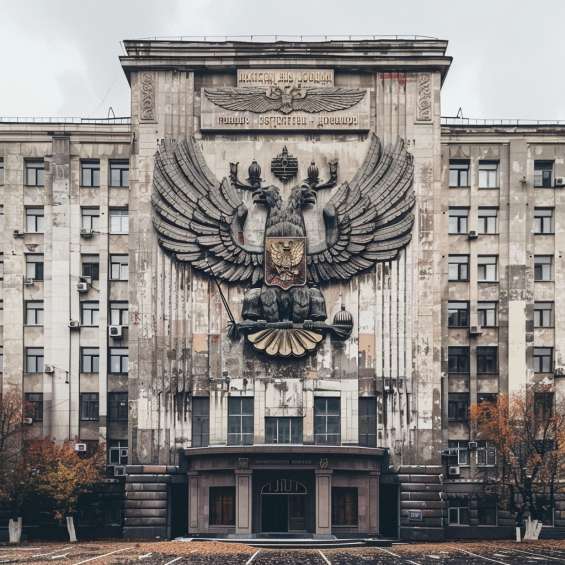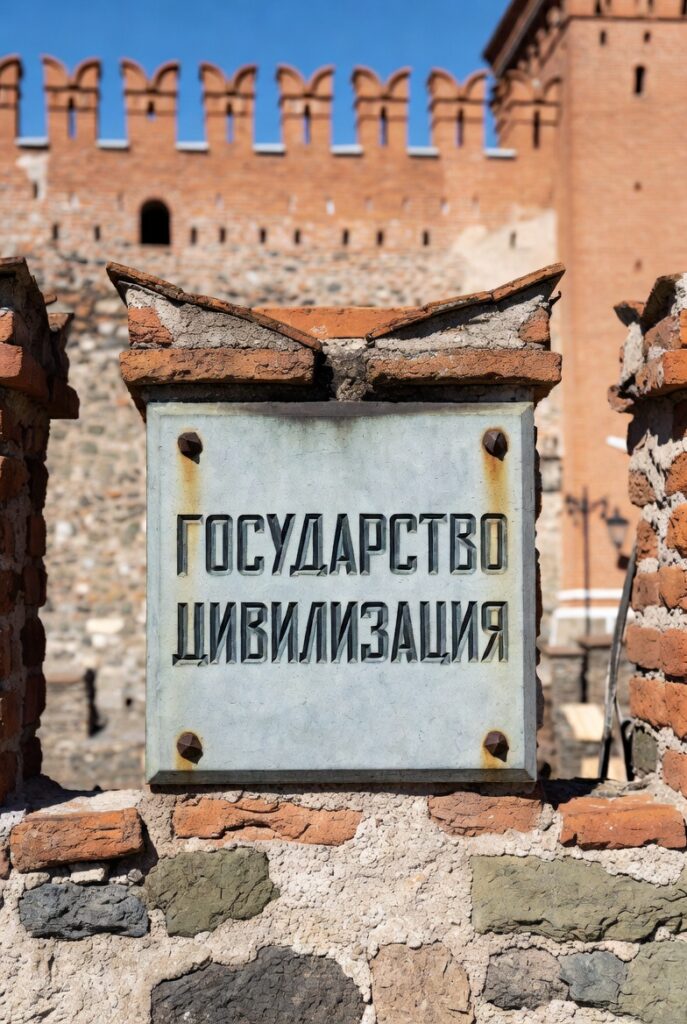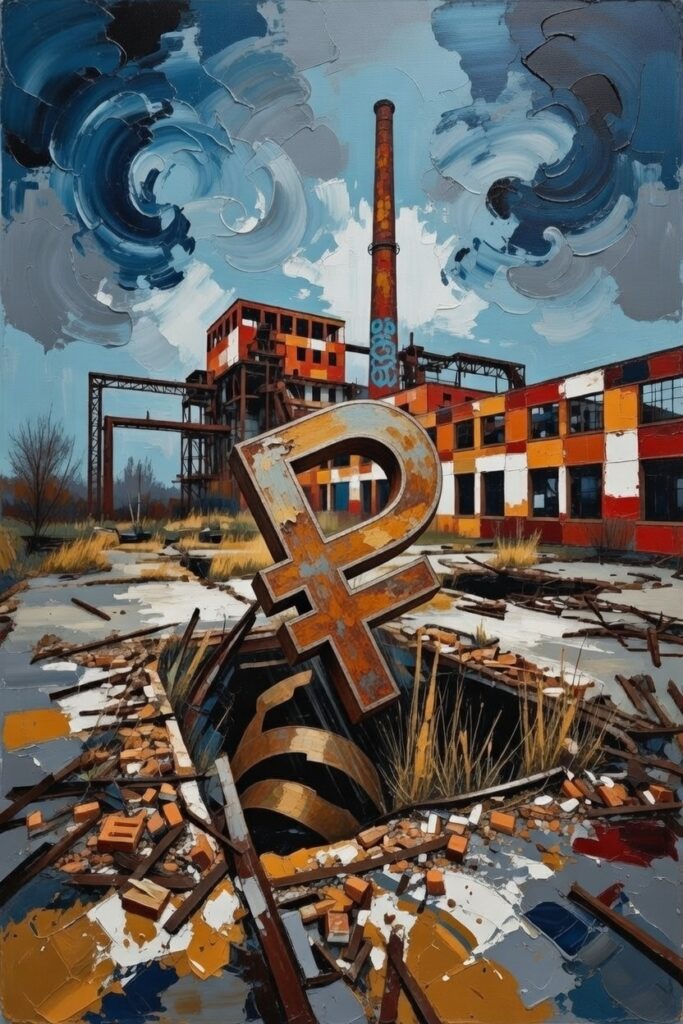According to the Russian media, the Russian authorities are about to create a new ministry for youth policy and education on the basis of the Government Agency for Youth Affairs. In fact, it will be a propaganda body that will coordinate patriotic events and pro-government forums, as well as the development of ideological subjects for schools and, possibly, universities. So far, this work has been divided between the Ministry of Education, which is responsible for secondary education, «Rosmolodezh,» the political bloc of the presidential administration, and the Ministry of Science. Strange as it may seem, despite the Kremlin’s and Vladimir Putin’s personal attention to the issue of the ideologization of young people, the work is rather scattered and poorly coordinated. The «Movement of the First», the Kremlin’s «new pioneer organization», is supposed to teach children loyalty to the government, and the most active among them are to be integrated into Putin’s power vertical from an early age. Children who clearly understand what adults expect of them and how to win their favor can become coordinators of the movement in schools. In the future, the most successful of them could be promoted through the Kremlin’s youth and later cadre competitions. «Rosmolodezh» is in charge of training and raising a core group of new active loyalists. The Ministry of Education is busy developing ideological lessons called ‘Conversations about Important Things’ and reformatting school history courses to suit the wishes of the country’s top leadership. The political bloc of the presidential administration provides the Ministry of Education with a certain ideological framework for the new subjects and courses, but this framework is far from clear and straightforward. Sergei Kiriyenko and his subordinates have never been able to come up with an ideology, or at least a quasi-ideology, for Russia. Kiriyenko’s predecessors similarly failed at this task. That is why it is so difficult for Kremlin officials to draw the simplest lines for the regular ideological brainwashing of schoolchildren. It is even harder for the staff of the Ministry of Enlightenment to weave a cohesive canvas of meaning out of these disparate and blurry ideological lines. As a result, school «conversations about important things» turn out to be vague and inconsistent.
With the support of various structures that comprise presidential administration (primarily the autonomous non-profit organization «Russia — Land of Opportunities»), «Rosmolodezh», has learned to scale up large youth forums: currently, a total of about 30 events with federal status are held in the regions of Russia. However, the ultimate goals and results of these gatherings are not very clear. Representatives of the presidential administration, regional and federal officials, and organizers of Kremlin cadre competitions meet with loyalist students. In most cases, however, this communication does not yield any tangible results: after all, the Kremlin still does not have a new Komsomol organization. In this sense, the Kremlin’s «young pioneers», too, are a dead-end: career-minded children still have nowhere to go once they graduate from these organizations. More precisely, they have to act at their own risk, because there is no system in Russia for promoting loyal youth (or at least orchestrating this promotion). Instead, there is a range of disparate practices of ideological brainwashing and attempts to handpick people useful to the system.
By creating a new ministry, the presidential administration is attempting to coordinate the work of training loyalist cadres, starting in schools and extending to applications for the «Leader of Russia» contest. It is not that it requires a lot of effort but still, quite a few things need to be done. For example, it would be necessary to link the content of the «Conversations on Important Things», which are school lessons that deal with whatever situational topics emerge, with the university propaganda course «Fundamentals of Russian Statehood.» The presidential administration will need to elaborate a system of promotion within its «pioneer» organization making it conditional on the student’s active participation in the «Conversations on Important Things» classes. Finally, the system lacks a new version of the Komsomol organization, which could further promote activists from the ranks of the young pioneers and loyalists who realized that they wanted to work within the «system» at a more conscious age. It is already clear that Sergei Kiriyenko’s people will supervise the work of the new ministry. From the formal point of view, the new ministry should be linked to the social block, and it is quite likely that the current political curator of the presidential administration will head it in the status of deputy prime minister. In such a case, this structure will become a serious lever to influence the Kremlin’s political bloc in case Kiriyenko fails to keep his own protege in it.
If Kiriyenko does not move to the White House (the seat of the Russian government), although the first deputy head of the presidential administration is not averse to the idea of working in the government, the «educational machine» will still be oriented towards the political bloc due to its politicized nature. A seasoned bureaucrat, Kiriyenko, has long learnt to subjugate spheres that were previously far from the serious influence of the political bloc. The new ministry is guaranteed to fall under his control in any case, since it is being created with the direct lobbying participation of the current political bloc. And Sergei Kiriyenko becomes the creator and chief engineer of a conveyor belt for the production of loyalists. A conveyor that will be able to act in the interests of any leadership of the country, whatever that might be, not necessarily Vladimir Putin and his entourage.
Flooding in Kiriyenko’s «incubator»
At the same time, some of the machines on this big conveyor belt are already working, processing fairly mature and established managers who want to become heads of Russian regions. The Russian Academy of National Economy and Public Administration has been running the so-called «School of Governors» for a long time, through which almost all the heads of territories have passed. Civil servants and business managers who take these courses are primarily taught public relations skills: communication at public events, behavior in crisis situations, strategies and tactics for social media. The «School» has been catering to technocrats with low public profile and management experience under their belts, so there is no need to train them in modern management, economic and financial practices. What they do need, however, is coaching on how to manage their public appearances. As experience has shown, the Kiriyenko School training sessions are at least somewhat useful for public promotion of someone who is a new face in the region of his or her appointment and needs coverage on social networks. They are also useful for the organization of PR events under normal conditions. Typically, the so-called «new wave governors» (the former brand of «young technocrats» has now been recognized as obsolete and is a thing of the past) truly earned the sympathy of a part of the electorate in the first period of their work by resorting to understandable strategies: recording videos on social networks, shopping in ordinary shops and markets, participating in Saturday clean-up days and sports competitions. In times of crisis, though, governors from the incubator tend to perform poorly. This is evinced by the track record of Denis Pasler, the governor of the Orenburg region, a graduate of the Russian Academy of National Economy and Public Administration. The regional authorities remained silent for a long time and failed to develop any anti-crisis strategy. As a result, several hundred residents of the flooded city of Orsk gathered in the central square to demand urgent action. Pasler tried to address the representatives of the crowd, but he talked down to the people and his commanding, arrogant tone destroyed any hope of dialogue. Now the authorities pin their hopes on Irek Faizullin, the federal minister for construction, who came to the disaster-affected area and whose presence is supposed to quell public discontent.
Thus, Kiriyenko’s staff training courses only cover routine work, while anti-crisis PR is either not taught at all or taught poorly. There is another possibility still: people who take these courses might be ill-equipped to work under crisis conditions, but then we must question the selection process that admits such people to the School of Governors. If social problems get worse, the Kremlin will simply not have a gubernatorial shield to protect it against the discontent of the population. On the contrary, incompetent «anti-crisis» measures undertaken by regional leaders nourished in Kriyenko’s «incubator» can only fuel public discontent. In isolated cases, the problem can be solved by dispatching top federal bureaucrats to the scene, but in the case of widespread governance failures, this will not be possible.










